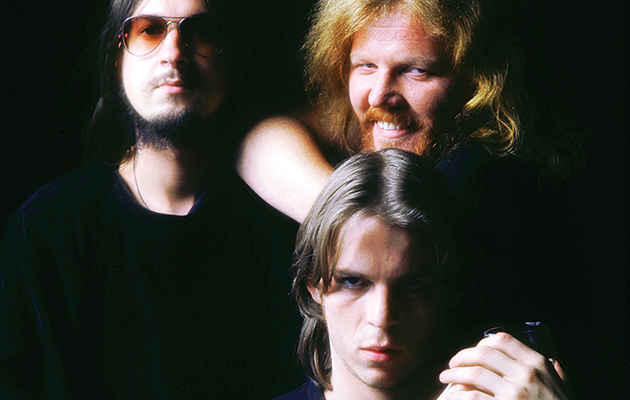Order the latest issue of Uncut online and have it sent to your home! I reviewed the excellent, exhaustive Tangerine Dream boxset, In Search Of Hades: The Virgin Recordings 1973–1979, in a recent Uncut, and also spoke to synthesist and keyboard player Peter Baumann about those years. Here's a ...
Order the latest issue of Uncut online and have it sent to your home!
What was Edgar Froese like as a person?
Hahahaha! What was Edgar like?! He was a very very interesting person. He had a lot of charisma, a very strong personality. Sometimes he was, I would say, living in a parallel universe. His philosophies, his interests and his mistrust of the music business, it made him unpredictable in a good way. Even for improvisation, it was unpredictable what he would put on the table. He was a heavyweight in terms of personality, in terms of how he viewed what we were doing. He was uncompromising, basically. He was always interested in metaphysics, whatever was out there that was the furthest expanse of the human mind – he would be interested in conversations with scientists that were not run of the mill. The titles reflect a little bit of Edgar’s flavour.
You were so young too!
I joined the band when I was 18. How did I stumble into that situation?! But it was very cool.
Did the working practices change for Rubycon and Stratosfear?
Everything influences everything else, and with the success of Phaedra and the live show, there was a little bit of pressure with how we followed it up. We didn’t want to be too commercial, so there was a little bit more of a thought process behind what we were doing. We also realised we had to allow it to be what it is in the studio and not try to do a Top 10 record. There was certainly more consideration, but at the end of the day that’s what it was. Rubycon, Stratosfear and Ricochet were all records that belonged to that time.
Why did you leave in 1977?
We spent a lot of time together. Success always has a particular way of putting pressure on a group. It seemed like it wasn’t as fresh as it had been in the beginning. The juice wasn’t as fresh, the excitement and the electricity wasn’t quite there. It became a job, and we weren’t as satisfied as we would have liked to be. That’s why there was a change.
The US tour in early 1977 must have been insane – you were very well-received.
There were no computers, no Instagram, none of that, so we didn’t know what to expect in America. It was a very cool tour – I don’t remember so much of it, we were just rushing around from town to town, there were parties all over the place, the typical music business chaos. But the concerts themselves were really fun.
Listening to the music, one might imagine a lot of hedonism – but you were actually very focused, right?
Compared to some heavy-duty rock’n’roll bands, we were quite tame, that’s for sure. I wasn’t drinking at all, but we were all smoking some has – at the time it was much more mellow than what you get today. Christopher and Edgar were drinking but not heavily, just with dinner. It wasn’t anything out of bounds. But we were always a little bit in a fog from smoking pot – and the music itself gets you out of being too square.
Oedipus Tyrannus is a real find in the box. What do you remember of that?
We did this for a play, and I think we recorded it at Edgar’s home studio on a small, four-track machine. I know it was a play in England, but that’s about it.
Favourite piece?
They’re all pretty close, but I’d say the first sides of Phaedra and Ricochet are maybe the top. The first piece of Rubycon too.



